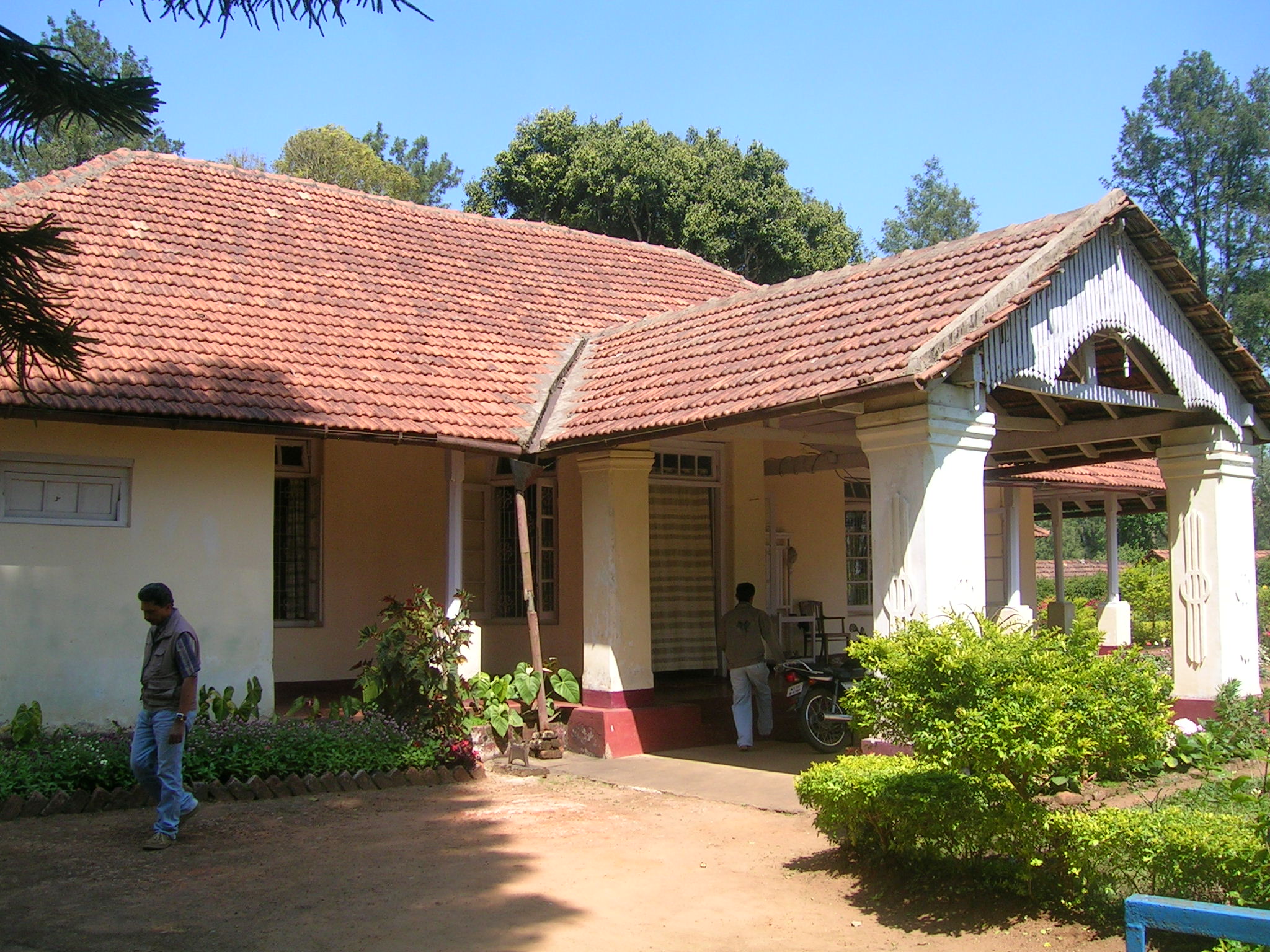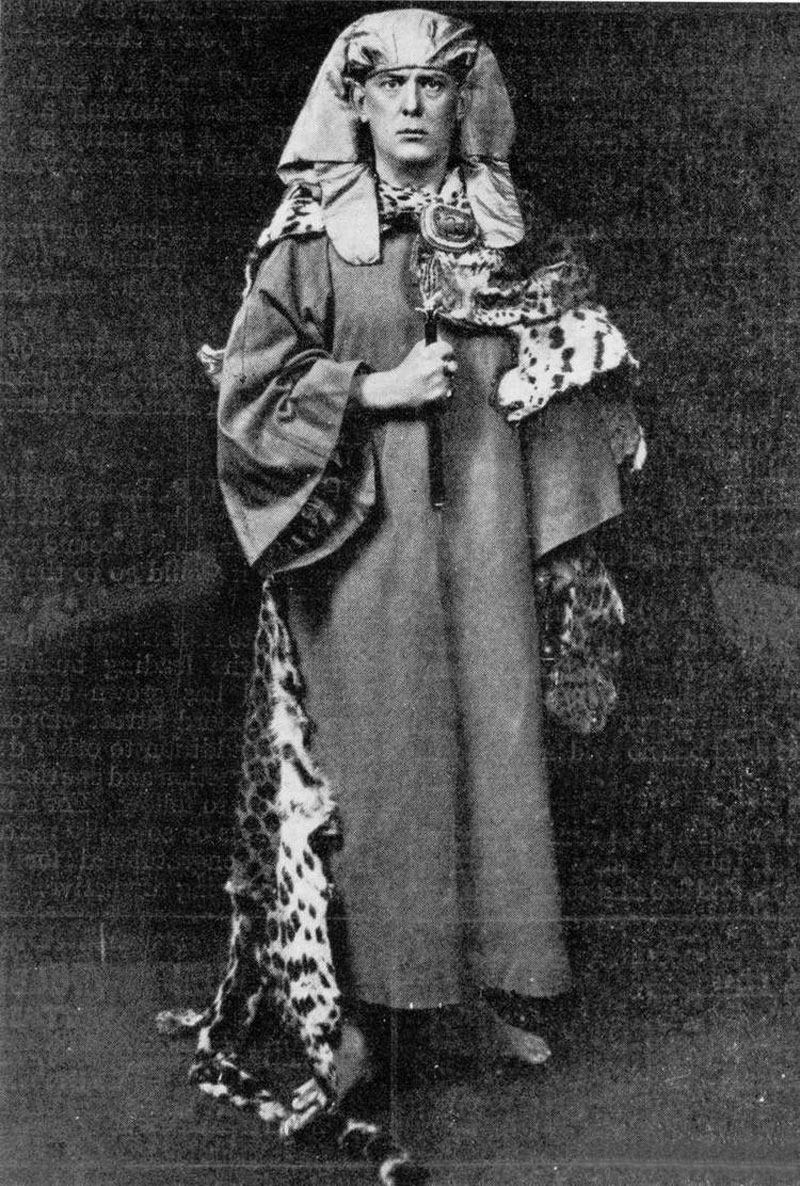|
Kalyatanda Ponnappa
Kalyatanda Ponnappa was a 17th-century warrior of Kodagu (Coorg). Since he was deified after his death, the people of Kodagu consider him to be a god. He is also known as Kaliat-Achchappa or Kaliat Ajjappa. Early life Ponnappa was born in the Kalyatanda (aka Kaliatanda) family as the son of Kuttayya of Naalnaad (Nalknad). Ponnappa's parents were ardent devotees of Igguthappa. G Richter calls him ‘a Malayalam man who came to Coorg many generations ago, (and) got naturalized.’ A Kodava by birth, Ponnappa was also associated with the Malayalam land (Kerala). His forefathers had lived in Kerala and Ponnappa himself had studied tantric magic in Kerala. His agrarian father was upset that Ponnappa didn't look after the fields. So Kuttayya told his wife not to feed Ponnappa and broke Ponnappa's bow. Upset with this, Ponnappa left home. Ponnappa was betrothed to his aunt's daughter. He also had a friend and assistant called Katala Boltu. Career Skirmishes Ponnappa b ... [...More Info...] [...Related Items...] OR: [Wikipedia] [Google] [Baidu] |
Kodagu
Kodagu (also known by its former name Coorg) is an administrative district in the Karnataka state of India. Before 1956, it was an administratively separate Coorg State, at which point it was merged into an enlarged Mysore State. It occupies an area of in the Western Ghats of southwestern Karnataka. In 2001 its population was 548,561, 13.74% of which resided in the district's urban centre, making it the least populous of the 31 districts in Karnataka. The nearest railway stations are Mysore Junction, located around away, Thalassery, and Kannur, the latter two located in Kerala at a distance of about . The nearest airports are Kannur International Airport in Kerala ( from Madikeri) and Mangalore International Airport ( from Madikeri). Geography Kodagu is located on the eastern slopes of the Western Ghats. It has a geographical area of . The district is bordered by Dakshina Kannada district to the northwest, Hassan district to the north, Mysore district to the east, Kas ... [...More Info...] [...Related Items...] OR: [Wikipedia] [Google] [Baidu] |
Igguthappa
Igguthappa is a Kodava deity worshipped in Kodagu, India. Mythology The Kodava God of the Kodava Tribe, Legend has it that in ancient times from what is now Kerala arrived seven celestial children. They were siblings, six brothers (including Igguthappa) and one sister. The first 3 brothers stayed back in Kerala in and around what is known as Kanjirath village, in Taliparamba. The eldest brother was known as Kanyaratappa (Kanyarat was a name for Kanjirath), the second was Thiruchembarappa and the third was Bendru kolappa, known by the names of the villages they settled down in and where temples were built for them. The temples built for the three brothers are now famous in Kannur in Kerala. *The temple of the first brother is now famous as the Rajarajeshwara Temple in Tali Paramba. *The Trichambaram Temple of the second brother is now famous as the Krishna temple in Taliparamba. *The third temple is well known as the Vidyanatha temple of Kanjirangad. The remaining three brothe ... [...More Info...] [...Related Items...] OR: [Wikipedia] [Google] [Baidu] |
Ritual Magic
Ceremonial magic (ritual magic, high magic or learned magic) encompasses a wide variety of rituals of magic. The works included are characterized by ceremony and numerous requisite accessories to aid the practitioner. It can be seen as an extension of ritual magic, and in most cases synonymous with it. Popularized by the Hermetic Order of the Golden Dawn, it draws on such schools of philosophical and occult thought as Hermetic Qabalah, Enochian magic, Thelema, and the magic of various grimoires. Ceremonial magic is part of Hermeticism and Western esotericism. The synonym magick is a archaic spelling of 'magic' used during the Renaissance, which was revived by Aleister Crowley to show and differentiate the occult from performance magic. He defined it as "the Science and Art of causing Change to occur in conformity with Will", including "mundane" acts of will as well as ritual magic. Crowley wrote that "it is theoretically possible to cause in any object any change of which t ... [...More Info...] [...Related Items...] OR: [Wikipedia] [Google] [Baidu] |
Divination
Divination (from Latin ''divinare'', 'to foresee, to foretell, to predict, to prophesy') is the attempt to gain insight into a question or situation by way of an occultic, standardized process or ritual. Used in various forms throughout history, diviners ascertain their interpretations of how a querent should proceed by reading signs, events, or omens, or through alleged contact or interaction with a supernatural agency. Divination can be seen as a systematic method with which to organize what appears to be disjointed, random facets of existence such that they provide insight into a problem at hand. If a distinction is to be made between divination and fortune-telling, divination has a more formal or ritualistic element and often contains a more social character, usually in a religious context, as seen in traditional African medicine. Fortune-telling, on the other hand, is a more everyday practice for personal purposes. Particular divination methods vary by culture and reli ... [...More Info...] [...Related Items...] OR: [Wikipedia] [Google] [Baidu] |
Occult
The occult, in the broadest sense, is a category of esoteric supernatural beliefs and practices which generally fall outside the scope of religion and science, encompassing phenomena involving otherworldly agency, such as magic and mysticism and their varied spells. It can also refer to supernatural ideas like extra-sensory perception and parapsychology. The term ''occult sciences'' was used in 16th-century Europe to refer to astrology, alchemy, and natural magic. The term ''occultism'' emerged in 19th-century France, amongst figures such as Antoine Court de Gébelin. It came to be associated with various French esoteric groups connected to Éliphas Lévi and Papus, and in 1875 was introduced into the English language by the esotericist Helena Blavatsky. Throughout the 20th century, the term was used idiosyncratically by a range of different authors, but by the 21st century was commonly employed – including by academic scholars of esotericism – to refer to a range of e ... [...More Info...] [...Related Items...] OR: [Wikipedia] [Google] [Baidu] |
Warlock
A warlock is a male practitioner of witchcraft. Etymology and terminology The most commonly accepted etymology derives ''warlock'' from the Old English '' wǣrloga'', which meant "breaker of oaths" or "deceiver" and was given special application to the devil around 1000. In early modern Scots, the word came to be used as the male equivalent of witch (which can be male or female, but has historically been used predominantly for females). The term may have become associated in Scotland with male witches due to the idea that they had made pacts with Auld Hornie (the devil) and thus had betrayed the Christian faith and broke their baptismal vows or oaths. From this use, the word passed into Romantic literature and ultimately 20th-century popular culture. A derivation from the Old Norse ''varð-lokkur'', "caller of spirits", has also been suggested, but the ''Oxford English Dictionary '' considers this implausible due to the extreme rarity of the Norse word and because forms without ... [...More Info...] [...Related Items...] OR: [Wikipedia] [Google] [Baidu] |
Magic (supernatural)
Magic, sometimes spelled magick, is an ancient praxis rooted in sacred rituals, spiritual divinations, and/or cultural lineage—with an intention to invoke, manipulate, or otherwise manifest supernatural forces, beings, or entities in the natural, incarnate world. It is a categorical yet often ambiguous term which has been used to refer to a wide variety of beliefs and practices, frequently considered separate from both religion and science. Although connotations have varied from positive to negative at times throughout history, magic continues to have an important religious and medicinal role in many cultures today. Within Western culture, magic has been linked to ideas of the Other, foreignness, and primitivism; indicating that it is "a powerful marker of cultural difference" and likewise, a non-modern phenomenon. During the late nineteenth and early twentieth century, Western intellectuals perceived the practice of magic to be a sign of a primitive mentality and also comm ... [...More Info...] [...Related Items...] OR: [Wikipedia] [Google] [Baidu] |
Kodagu District
Kodagu (also known by its former name Coorg) is an administrative district in the Karnataka state of India. Before 1956, it was an administratively separate Coorg State, at which point it was merged into an enlarged Mysore State. It occupies an area of in the Western Ghats of southwestern Karnataka. In 2001 its population was 548,561, 13.74% of which resided in the district's urban centre, making it the least populous of the 31 districts in Karnataka. The nearest railway stations are Mysore Junction, located around away, Thalassery, and Kannur, the latter two located in Kerala at a distance of about . The nearest airports are Kannur International Airport in Kerala ( from Madikeri) and Mangalore International Airport ( from Madikeri). Geography Kodagu is located on the eastern slopes of the Western Ghats. It has a geographical area of . The district is bordered by Dakshina Kannada district to the northwest, Hassan district to the north, Mysore district to the east, Kasa ... [...More Info...] [...Related Items...] OR: [Wikipedia] [Google] [Baidu] |
Indian Warriors
Indian or Indians may refer to: Peoples South Asia * Indian people, people of Indian nationality, or people who have an Indian ancestor ** Non-resident Indian, a citizen of India who has temporarily emigrated to another country * South Asian ethnic groups, referring to people of the Indian subcontinent, as well as the greater South Asia region prior to the 1947 partition of India * Anglo-Indians, people with mixed Indian and British ancestry, or people of British descent born or living in the Indian subcontinent * East Indians, a Christian community in India Europe * British Indians, British people of Indian origin The Americas * Indo-Canadians, Canadian people of Indian origin * Indian Americans, American people of Indian origin * Indigenous peoples of the Americas, the pre-Columbian inhabitants of the Americas and their descendants ** Plains Indians, the common name for the Native Americans who lived on the Great Plains of North America ** Native Americans in the Uni ... [...More Info...] [...Related Items...] OR: [Wikipedia] [Google] [Baidu] |
Kodava People
The Kodava people or Kodavas are an ethno-linguistic group from the region of Kodagu in the southern Indian state of Karnataka, who natively speak the Kodava language. They are traditionally land-owning agriculturists and patrilineal, with martial customs. Kodavas worship ancestors and weapons. They used to worship swords, bows, arrows and later guns. Hence, Kodavas are the only ones in India permitted to carry firearms without a license. Origin The words ''Kodava'' (the indigenous people, language and culture) and ''Kodagu'' (the land) come from the same root word 'Koda' of unknown meaning. Some claim it means 'hills', others say it means 'west' but both relate to the Western Ghats' location. Kodagu is called ''Kodava Naad'' in the native Kodava language. The word "Kodagu" was anglicized to "Coorgs" by the British Raj. For centuries, the Kodavas have lived in Kodagu cultivating paddy fields, maintaining cattle herds and coffee plantations, and carrying arms during war. Pura ... [...More Info...] [...Related Items...] OR: [Wikipedia] [Google] [Baidu] |







